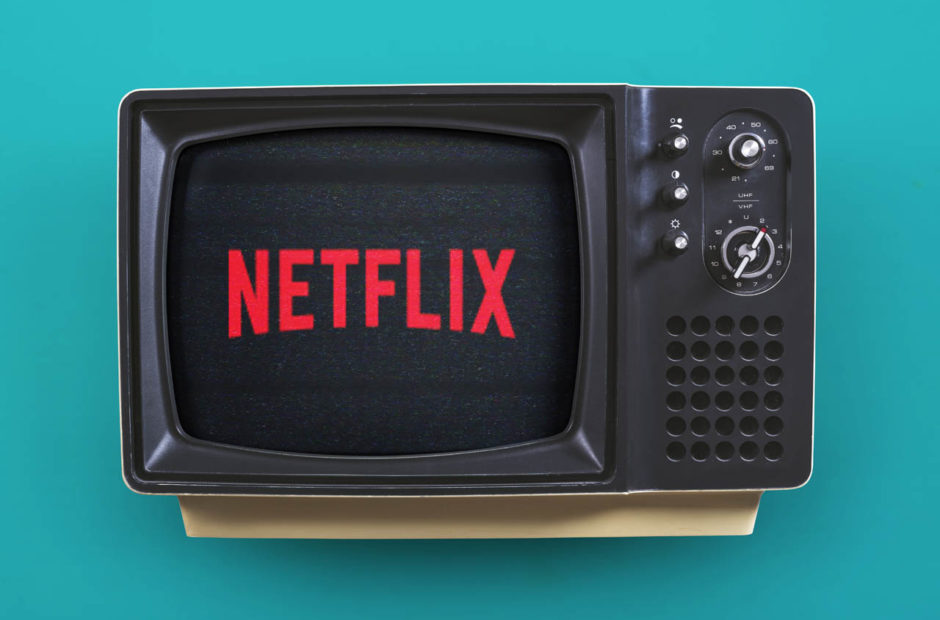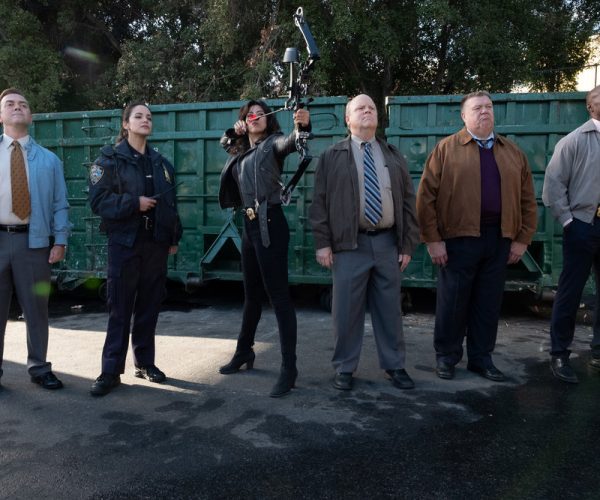Throughout the history of the film industry, there have been seismic shifts that have caused the industry to be concerned about its future. Dating back to the introduction of the first films with sound – known as ‘talkies’ – there have been people in the industry who wish to fight change.
There have also been those who have been sure new technologies outside of their control would eventually lead to the demise of the movie houses. When television reached a tipping point in the 1950s, theaters were left scrambling to find a way to bring people back in. While the theaters did suffer for a time, things finally evened out and the theaters grew stronger and more powerful.
Now we’re going through another crisis brought on by Netflix. A company that had made it into millions upon millions of homes, and no one in Hollywood seems to want to play nice with it now. And this time it’s not just the theaters, but the filmmakers themselves who are angry, and it seems that Steven Spielberg is going to be the one to take up the fight.
The thing is, there is a blueprint to how to solve all of these problems. For the film industry to live in harmony with the streaming services of the world, but the question is if Hollywood will bother to look and see it’s there.
How we got here
The Academy Governor’s Board is due to meet in April, and Spielberg – who represents the directing arm of the academy – will reportedly be arguing that films such as Roma by Alfonso Cuarón should not be allowed to qualify for an Academy Award even if it had a theatrical run. To Spielberg, because the film was made by Netflix with the intention of it being shown on the service, it is a made for TV movie and should only be allowed to qualify for the Emmys.
It seems there were also some concerns over how much Netflix spent on the campaign for the film with some estimates saying the company spent upwards of $50M to secure the Best Picture nod. Even the low-end estimates of $25M would still be nearly five times what was spent on the eventual winner, Green Book.
While Roma didn’t win Best Picture, Cuarón did win for Best Director, and the film itself won for Best Foreign Language Film.

It’s not just Spielberg
It is now just the Oscars that are facing backlash over the success Netflix saw with Roma. Cineworld, the second largest theater group in the world, has pulled its support of BAFTA in the U.K. This follows on from the film winning four awards this year – Best Film, Best Direction, Best Film Not in the English Language, and Best Cinematography – and the theater group’s displeasure with the results. Theater chain Vue has also threatened to withdraw support for BAFTA saying that it allowed a ‘made for TV’ movie qualify for the awards.
In a letter to its members, BAFTA stated: “I regret to tell you that, on Tuesday, Cineworld informed us of its unilateral decision to withdraw its support of BAFTA, citing similar concerns [to those of Vue] regarding the eligibility requirements of the Film Awards.” The letter went on to state that BAFTA was in talks with Vue and that there would be a “review of our eligibility criteria in the coming months.”
The letter concluded by saying “We encourage all cinema exhibitors to have their voices heard as part of the ongoing process of review and we look forward to continuing that dialogue with all sectors of our industry in the coming months.”
For now, it seems Netflix is willing to play at least a little bit of ball with the angered parties. The company is planning a four week, wide release of Martin Scorsese’s The Irishman to appease angered parties and to give the director his request. While Roma did play in theaters, it was restricted to a three-week run and just in art houses. This allowed the company to not have to report its box office results, another sticking point for many in the industry. With The Irishman going wide, it will have to report box office numbers, and that may help appease some of the people in the industry.

Embrace change
This is a battle we have seen fought before in the world of music. It took longer for the film industry to get caught up in the tidal wave of streaming media due to the size of the files. If you look to the record industry, however, the road map is laid out for how this can go. On Feb. 28 the Recording Industry Association of America released its final number for 2018, and it was the best year for the music industry since 2008 with revenue of $9.8B. 75 percent of all recorded music revenue came from, you guessed it, streaming sources. And that number was up 10 percent from the previous year.
The music industry took its time, but it finally learned if you can’t beat them, join them and look where it got that industry. Revenues are climbing again. Record shops, which you would think would be dying by the truckload, are finding ways to make themselves something unique, and special to visit. Even the sales of vinyl records are on the upswing.
Where the difference is, at the moment, is that the record industry realized the consumer mattered. At the end of the day it should be up to the consumer how they wish to consume the media being produced. The film industry could save itself a lot of headaches and a few rough years by learning that now.
There’s a ton of reasons services such as Netflix have been embraced. It is not a wholly pleasant experience to go to a movie theater these days. Reclining seats or not, the theaters are still treating you like a captive. From commercials that begin at the ‘start time’ of the film, to inflated ticket and snack prices, it is difficult to feel welcome in a theater these days.
Instead of exhausting resources and time on silly fights with Netflix over some trophies, realize this is what the consumer wants. Learn that we’re going to vote with our wallets and we’re going to consume media the way we choose to. Theaters can still have a lovely life ahead of them. Filmmakers such as Spielberg can continue to sound like someone telling kids to get off their lawn, but remember at the end of the day this is about us, the consumers.
We already sent a message to the record industry and they heard us loud and clear. Does the film industry really want to go through the same fight for no good reason?




















